|
Human beings are manifestation machines. There are lots of ways we create reality. On the physical level, we are natural makers…from creating whole worlds with words, to deep emotions with music, to grand awe with paint or architecture. We also create in other ways. There is a belief, which I share, that thoughts become things. This is an amazing ability that we are only starting to fully appreciate. With this ability comes responsibility. Everyone has the same amount of time in a day. Everyone has a store of energy and attention that can be used during that time. The big question is what are we doing with it? What are the long term and bigger picture ramifications of our thoughts and actions? The more we understand our power, the more responsibility we have in wielding it well. We have the opportunity to decide what larger field of reality we are feeding. In times of chaos or fear or anger, we…or at least I…turn to the comfort of focusing on smaller things that we feel we can control. Creating order out of chaos is a natural response and usually helpful. But sometimes we get caught up in either things that don’t really matter or are harmful although we may not realize it. Both of these responses are a misuse of our creative manifesting power. Let’s say we spend some of our precious, non-renewable resource of time and some of our potent energy (it is potent whether you realize it or not) in posting some grammar meme, like these: Now, as a writer I understand the importance of grammar (even if I don’t always get it right). As a spiritual being who is trying to understand how to best use my power and resources to create a world that is an expression of Love (as opposed to our limited human ideas about love), I cringe at hyper vigilance and judgment being spread like an insidious virus in the name of humor or in upholding the pillars of civilization (many take their grammar way too seriously). I believe that when we do something like this, we accomplish two things. 1. We are using our precious resources on something that is at most ineffective and at best downright wasteful. If we truly care about grammar and helping people learn to use language more effectively, our time and energy would be best used in teaching…and teaching with love and respect. Intent matters. Indeed, I am counting on the importance of intent as I write this, as I certainly don't want to fall into the trap I am describing. 2. We feed the field of bullying and judgmental energy. This is so important. We live in a liminal time, a time in between stories. Our old worldviews are dying and new ones are forming (we, as co-creators of the universe are at this moment creating the future). That’s one reason we are seeing things in the world that we are right now…the old world has essentially died and we are experiencing its death throes. It has nothing to lose so it is thrashing out wildly. Our job is to help minimize the damage it does on the way out. Our other job is to pay attention to what energy fields we are feeding with our time, attention, actions, words, etc. Calling or implying that people are inferior to you because they didn’t have the same education or environment that allowed them to take advantage of education as you feeds the field of bullying. Do we want our next story to the same story but just with other people doing the bullying? I don’t. Be the change you want to see. Live the story you want to tell. Think about what you are doing and why. Imagine your actions as seeds that will grow in the future. What will they grow into? Something that nourishes live or something destructive? How does this tie into tarot? Let’s consider the 5 of Swords. It tells many stories, as all the cards do. The story I’m thinking of now is of the pyrrhic victory. As we try, in our fear of chaos and the death throes of the old world, to push forward anything that imposes order and makes us feel better about ourselves, we may win some battles. We may help someone actually understand the differences between they’re, their, and there. We may (and this is more likely) help ourselves feel better about ourselves because we are so very smart and our like-minded friends will jump in and help feed that good feeling even more. But those are the short-term benefits. What are the long-term possibilities? Like the dude in the 5 of Swords, gleefully collecting all the weapons and probably feeling pretty darn superior, at what cost did he win? Did he give up a part of his soul? Did he alienate potential allies? Did he create future enemies? Did he feed the energy field of terror and fear? I imagine we can all feed the world...this current one and the future...with something more nourishing, more life-giving, and more beautiful.
1 Comment
I had a really amazing experience last night and even in the midst of it, I knew I wanted to share it with you.
In the face of overwhelming headlines about the state of our world, it can be hard to know what to do to make a difference. Over the past few years, I've found little ways to make if not big differences at least small differences that could yield larger resonances. For the past 6 weeks or so, I've begun a little blessing practice. With all the fear, hate, and anxiety coursing through our society, I knew I couldn't gather everyone into my arms and hold them to my heart until they calmed down. Instead, before going to bed, I bless my neighborhood and everyone in it. Each night it is different and I never know ahead of time what the blessing will be. Inspiration always came, like some wise and caring being whispering in my ear. Even though no one hears the blessing, it feels like some of the most powerful work I've ever done. What was different about last night is that after I finished the blessing but was still looking out of the window, I saw a car driving out of the neighborhood. As it was driving away, I immediately thought toward the people in the car "and you, you are taking this blessing with you and spreading it wherever you go; it is going viral." Now the magical practitioner in me rose up all ethical and judgmental saying, "It is bad enough that you are blessing people without their permission, but now sending it out into the world like a virus...not cool!" But whatever. It felt right. If felt powerful. It felt like it came from my heart and from something/someone more than just me. In addition, it was a really cool blessing. Some that are whispered to me are more poetic than others. Here it is and I give it to you, too. Feel free to spread it or any other blessing. How often do you get a gift idea that is free and actually gets bigger, better, and shinier the more it is shared? "May the magic in your world leap into your heart like drops of fire and pulse through your veins making you feel just so good to be alive." And here is a special additional blessing for you, my friends: "May you move through this season with ease and grace, as a walking blessing to the whole world." Many people who love tarot consider it in some way sacred, depending on their definition of that word. My definition of a sacred text is very broad and I'm not the only one. The wonderful podcast, Harry Potter and the Sacred Text, has the tagline, reading something we love as if it were sacred. The podcast is so good and you should listen to it. First, just because it is deep and human and real. Second, because their practices are so easily applied to tarot or whatever you love. The way "sacred text" is defined varies depending on who you ask. One of the characteristics I've heard that rings true for me is that a sacred text is generative. That is, it inspires and/or is directly connected to creating new material. Of course I love this idea because I believe that the Divine did not complete the creation of the universe but rather left it unfinished and invited us, all of us, to participate in its continuing co-creation. Also, if something doesn't support or inspire new life or creations, I don't see how it can be sacred. Tarot, as a literary and art form, has proved to be very generative, offering us versions of the Rider-Waite-Smith that look at different themes through that lens and bold decks that take on completely new lenses. Wisdom can be found in all of them. Today I wanted to stretch myself out of my comfort zone and take a look at a page from an unusual version of tarot, the Ace of Swords from the Circle of Life Tarot. A nude pregnant woman sits on the ground, looking at her full belly in wonder, curiosity, and admiration. Near her is a large, ripe pumpkin fully of sunshine and seeds and a sword is thrust into the ground. Hovering in the air, soft underbelly toward us, a huge beetle tightly clutches a sword/spear with the tip at its head and the shaft running along the length of its body.
All the sexual symbolism makes this a unique Ace of Swords. Usually associated with new beginnings or new ideas, the ripeness of this image reminds us that beginnings lead to endings. This card is reminder that ideas bear fruit and manifest in the physical world, particularly when we nurture them. Then from that initial idea or seed, many more will come and, if fed, will likewise bear similar fruit. Select the sword or idea you plan to wield as you co-create this world. It will make ripples, resonances, and consequences that will affect you and all of life. I know things are hard for lots of us right now. We're afraid and angry. We do need to remember, though, that our words and ideas are creating the future...not a million years from now but like tomorrow future. We will live with the fruits of our words and thoughts. Calling other people monsters and saying exaggerated things, demonizing others, focusing on headlines and sayings rather than actual policies only feeds and nurtures the great divide and perpetuates more of the same. I could go on, but this small wise person says it all so well: CLICK HERE FOR HUMBLING WISDOM My blessing for you all today: May you find the heart center of your life. May your mind be filled with beautiful ideas. May the sweetness of your heart lovingly nurture them. Much love, Barbara PS What I really wish is that everyone could just settle down. This kind of energy is how a small, inconsequential action lights off a metaphorical powder keg. The "Fives" of tarot have been on my mind a lot lately for some reason. A recent article is HERE. That post was over a month ago and ideas are still simmering. As some of you know, I'm working on my first non-tarot book. It's about energy clearing and cultivation. While it is not about tarot and will not include tarot, I cannot deny that tarot is the lens through which I look at life, so it shapes my ideas about almost everything. And here, with you all, I can talk about things in tarot terms and we all have this great shared vocabulary that makes communication easier. Plus, this is a great space for me to explore ideas and hopefully hear some of yours, which you can share either in the comments or via email. So let's talk about the 5 of Pentacles, taking a slightly different point of view. Below are images from Llewellyn's Classic Tarot and the Steampunk Tarot. The most common approach to this card is to say that it is material need of some sort and certainly the images in many decks support this interpretation. When we think about the number 5, we think chaos and disruption. Couple that energy with Pentacles, material resources, and it is an easy step to: physical want or deprivation. We can further say that part of the need is created by the neglect or misuse of resources of the spiritual institutions that are supposed to help people. This idea works well with many people's idea that the Hierophant represents all that is worst about organized religion. I think these ideas highlight a cultural bias that I didn't fully understand.
Because so many of us who have taken up the study of tarot have, in some way or another, been disappointed by the spiritual and religious paths that came to us through childhood, we very naturally take the view that all organized religion is, at worst, evil and destructive or, at best, benign traditions that fuel a consumer economy. Not all tarot readers feel this way, but plenty that I've met definitely do. What happens when we examine that assumption, that shared bias? I touched on it a little in that previous article I mentioned (excerpt below), but I didn't go far enough. "The 5 of Pentacles, with its very clear depiction of spiritual life (symbolized by the church window) and human suffering asks perhaps the hardest question. What is our relationship with the Divine when life is hard, when we or our loved ones are suffering, when terrible things happen to innocent people? How do we react when things that were good, maybe even great, turn to crap?" If you are familiar with my work, you know that I do not accept that the only or even main meaning of the Hierophant is stagnant and awful organized religion or stifling systems. Instead, I believe that the Hierophant teaches us the importance of living our faith, walking our talk...in short manifesting our spiritual beliefs in a real way in the physical world. The Hierophant is, after all, associated with Taurus, which rules the second house and is associated with values, both material and spiritual. Fives are associated with the Pentacle, which is the physical world under the guidance of spirit. The 5 of Pentacles seems like a good companion card for the Hierophant and shows a good lesson in what happens when you are not living your faith, when you do not walk your talk. As I continue thinking about energy clearing and cultivation, I realize that many people do not pay much attention to those activities unless something is very wrong. Their house feels "weird" or "off" so they use sage or salt or crystals to clear the energy. This certainly works, but it is also like going to the dentist for a filling when your tooth hurts rather than going twice a year for cleanings and brushing and flossing in between. While my book will contain actions to take when things are in crisis, the bulk of it will focus on how to maintain a clear, calm, stable energetic foundation in ourselves and in our environments so that we can avoid crises. This allows us to be more responsive rather than simply reactive in our lives. Along with tarot, another guiding idea in my life is the Hermetic principle "As above, so below." This ties in so nicely with the Hierophant and 5 of Pentacles. Instead of saying that we are in need and religion isn't helping us, we can flip that and say: when we forsake the small, daily practices of our spiritual beliefs, we find ourselves in need, both physically and spiritually. The more I pay attention to the energy in the world, the more I realize that everything physical is connected with spirit. Please do not misunderstand. I do know that there are physical needs that are dire and immediate. It is really hard to care about spiritual things when you are starving or in danger (as Maslow's hierarchy teaches us). I am not talking about those situations. I am talking about our normal, daily lives. And so, here is another way to look at the 5 of Pentacles...and a more empowering way. Instead of blaming some abstract formal religion (which we probably aren't in community with anyhow) for not helping us, we can own our responsibility for our individual spiritual practice. If we pay attention to the details in our lives and attend to things that need attending, it is a way of attending to both our spiritual and physical needs. Cleansing, healing energy flows. Stifling, sickening energy stagnates. As above, so below. Ergo, an organized and tidy place allows cleansing, healing energy to flow. That's true of our homes, our minds, our relationships, and our spirits. Something as simple as cleaning your bathroom regularly can be a metaphor for seeing yourself clearly. It's all connected. When we let things slide, we lose things, we feel more frantic, we are less efficient, and then things snowball until we are in that common quality we love to ascribe the 5s: chaos. The Hierophant from the Steampunk Tarot As promised in the previous entry today we are talking about change, specifically facing change with spiritual integrity and authenticity. This essay is brought to you by the number 5.
We’ll begin with the Hierophant, since he is numbered 5 in the Major Arcana. Before we begin, I ask you to open up to the idea that the Hierophant, as other cards in the deck have, can evolve in meaning to better represent our current understanding and world view. In “Tarot, Tricksters, and Accidental Grace” in the Spring 2016 issue of the Cartomancer, I wrote at length about how card meanings change over time and how important it is for us to always look toward reflecting our evolving consciousness as we look at the cards anew. Our beloved Rider-Waite-Smith deck was created in a culture of Victorian Christian mystics and the symbols, images, and ideas represent that culture. That culture is not our culture. Some may argue that spiritual truth or wisdom is absolute and unchanging through time. I do not agree with that and see that as fundamentalism…and to be honest, fundamentalism scares me. In a Hebrew creation story, it is said that God left creation unfinished, allowing it to continue evolving and also invited humans to participate in the co-creation of the future of the universe. I say we take up that invitation and help evolve tarot to better represent what we know to be true for us in this moment, knowing that as human consciousness evolves, the cards meanings will continue to change. Most people have issues with the Hierophant because they see him as the representation of rigid dogma and strict hierarchy. Back in the day when there weren’t many options for spiritual paths circulating in Western culture and when social order was valued very highly, it is true that ordained Church rules were created and used to control people. And sure, we can see that still in play today. However, we…by we I mean tarot readers and spiritual seekers…know now that we do have other options open to us and that maintaining order is not necessarily the main goal of spiritual wisdom. Even in Christianity today, there are some really exciting teachers who are totally pushing the bounds of what Christianity “teachers.” If you are interested, Rob Bell is one of those teachers…whose events are often protested by traditional “Christians.” That alone should be a good reason to be curious about what he is saying. The quickest way to convey my ideas about the Hierophant, which is markedly different from most that I’ve encountered, is to share what I write about him in the companion book for the Steampunk Tarot: 5, The Hierophant “Your every thought, every word, and every action expresses the truth of your soul.” Core meaning: Living faith in every day life. The name of this card comes from the word hierophany and means “the manifestation of the sacred.” Consequently, The Hierophant is one who teaches us how to live in accordance with our sacred beliefs. For those belonging to a group, community, or organized religion, there are usually teachers aplenty. For those who follow a more solitary path, they are often their own hierophant. This responsibility is often supplemented by studying sacred texts, works of art, private spiritual practices, and nature. This card has not always been called The Hierophant. In the oldest of decks, it was titled The Pope, also known as the pontiff. The “pontiff” means “bridge.” He is the bridge between theory and practice. He creates a connection between spiritual belief and daily lives. In this image, he sits between a pile of books, representing the culmination of human spiritual understanding, and a tree, representing many things, including a living practice and the inherent knowledge of good and evil. Both the books and the tree represent roots and tradition, wisdom gained through the ages. The apple, such a mundane symbol, brings to mind many things. Students used to give apples to their teachers. Although not technically correct, many people say that Eve gave Adam an apple, leading to their self-consciousness and banishment from paradise. If you cut an apple crosswise, the center forms a pentagram, representing the four elements of the physical world under the guidance of Spirit. Our hierophant, shown here as a humble, compassionate, and wise teacher, weaves together all these notions, and more, and gives them to us as keys to open up our own understanding. With all teachings, it is up to individuals to take them into their heart and mind and to ultimately decide whether or not to envelop them into their life. When The Hierophant comes to your reading, the most important thing is to ask yourself is how does what you believe match with what you think, say, and do. This card can represent a teacher who will help you identify your beliefs and assist you in determining how to best express those beliefs in your life. Here’s an interesting and key question: how does what you believe match up with what you think, say, and do? How wide is the gap between what you claim to value and your actions in this life? These are the questions the Hierophant gives us. One of the most difficult yet most important times to live our values is when we face changes. It is pretty easy to do what you think is right when things are flowing along all easy and stress free. But what do we do when faced with a challenge brought about by a change in circumstance. If the Major cards represent large, archetypal ideas and important wisdom, the Minors show how those ideas manifest in the physical world. The Hierophant asks “what will you do when faced with [insert any change of circumstance]? The Minor 5s give us scenarios to consider, asking us to face change that challenges our will, shakes our emotions, twists our ideas, or threatens our physical lives. The 5 of Wands shows a natural reaction to having our will questioned: defensiveness and fighting. This shows up often in meetings, where egos (easily associated with will) take over trying to preserve their place in the pecking order. In these cases, our wills have been distracted from their original purpose. Presumably we come to a meeting in order to accomplish a task as a group, everyone on the same team trying to do the best thing. However, when our ideas are not valued as much as we think they should be or as immediately as they should be, we change our focus from accomplishing the goal of making good decisions as a group to preserving our ego. The question we can ask ourselves is: which behavior best expresses our beliefs and values? Is it really serving our spiritual value to preserve some perceived pecking order or is it to help foster a sense of community and do great work together? The 5 of Cups calls into question how we react when faced with the knowledge that emotions and relationships are not permanent. We all know this to be true…emotions and relationships can and do change. Change is a natural part of life. Even in nature, nothing is static. How do react when faced with such a loss, the loss of dear one or even the recognition that we no longer feel the same way about someone or something? What is our guiding spiritual principle in these cases and to what extent to our actions match that principle? The 5 of Swords gives us the opportunity to think about how we react when our ideas about what is true are challenged. Although in the card, we usually think the story is about when others take what is ours or behave unfairly or cruelly and that is one valid way, but for this study we are looking at a different facet. Sometimes we have a beloved mindset that shapes our worldview and that we believe to be true and perhaps even True…unchangeable. Is our spiritual guiding force in these cases to hold true to those ideas no matter what evidence is produced to the contrary? Think of fundamental Christians who cling to the idea that the world is only a few thousand years old. Or of early American people who thought that African Americans should be slaves. Or of people who think that gay people have an agenda to destroy America. Insert your own deeply held idea. How do you react when faced with something that challenges that idea? The 5 of Pentacles, with its very clear depiction of spiritual life (symbolized by the church window) and human suffering asks perhaps the hardest question. What is our relationship with the Divine when life is hard, when we or our loved ones are suffering, when terrible things happen to innocent people? How do we react when things that were good, maybe even great, turn to crap? So for me, the Hierophant is the one who helps us learn to grapple with these important situations, who helps prepare us to understand what it means to live a life of authenticity and integrity, no matter the circumstances. And if you made it to the end of this, thank you for reading. Seasons of Tarot
Lately I’ve been thinking less about tarot as a divinatory tool and more as a Sacred Text…an unbound book of wisdom. One of the reasons many of us use tarot as a tool of divination is to get advice on the “right” decision regarding choices we have to make. Tarot has proved useful to me and countless others in this capacity. However, my mind has been turning toward the idea of not making a decision because it will give us a particular desired outcome but because it is the right thing to do. These things are not, of course, mutually exclusive, but looking at questions from a different point of view can give us interesting information. Because of this change in focus, the coming weeks and months will bring you a series of essays about Tarot as Sacred Text. The essays will be about my musings and will hopefully inspire you to discover your own unique sacred wisdom within the cards that we all love so well. Summer is winding down. Every change of season brings feelings of endings and new beginnings, of change…sometimes a sense of satisfaction for a season well-spent or regret over missed opportunities. The changing seasons remind us that life is a cycle and this can be comforting, as we know that summer will come ‘round again, that the moon will wax and wane with predictable regularity. They also remind us that time passes and things can never remain the same. The wisdom I’m looking for here in the cards is how we can understand and face change in our lives. The seasons of our lives do not always follow the regularity of the change of seasons. We live for a season, whether a year or a decade or years, as perhaps a student of some particular course of study, as an employee for a company, as a partner to a person. Sooner or later all these seasons end. Sometimes we fight the endings, holding on far too long to what was, comfortable in the familiar, even though we know, deep in our gut or in the center of our heart, that it is time to say good-bye. There are lots of cards of endings in tarot. Death is one card feared by many, a very natural fear as death brings change and humans are generally not fans of change. Actual death can occur in many ways, from a quiet, natural, peaceful death to a sudden, unexpected, and tragic death. However, I think the Death card isn’t necessarily about all forms human death (by human death, I don’t mean only physical death but all the ways humans experience deaths in their lives). Rather, I see it as an organic, natural death, the kind that happens when we see an ending approaching, recognize it, honor it, accept it graciously, and move on to the next phase. We don’t always do that, though. We often, as mentioned earlier, fight it, deny it, clutch tightly to what we think is ours. In those cases, time continues to move on and the experience of death isn’t the easy, peaceful, organic death of the Death card but the sudden, frightening, chaos-creating death of the Tower card. We don’t leave a job we know we should and find ourselves laid off or downsized. We don’t leave a relationship that we know is no longer viable, we don’t end it when we can part as friends who once loved each other but instead end up hurting each other horribly and losing a connection, perhaps forever. Seasons mark beginnings and endings. The Fool card is one filled with the possibility of beginnings. Generally, an optimistic card of beginnings, we are presented with seemingly infinite possibilities. The other aspect of the Fool that we don’t usually acknowledge is that as soon as the Fool takes a step, certain possibilities are no longer available. Beginnings and endings all in one, which is why the Fool can sometimes feel scary. Saying yes to something means saying no to other things. Similarly, the World card, generally an optimistic card of completion (we almost always say “completion” as it sounds more positive than “ending,” which has a sadder feeling to it) also contains a beginning in it. After completing something, it is time to move on…because, as nature teaches us, nothing healthy is stagnant. We’ve achieved something worthwhile and are comfortable with the schedules and systems we’ve created to get there, whether it is a class schedule or a career trajectory. Once the goal is reached, we have to release those comforting routines in order to discover and create the new ones that will take us to our next adventure. Change is an important concept and one we all struggle with. In the next essay, we’ll continue to look at how tarot teaches us about change as we consider the 5s…usually not anyone’s favorite, no matter the suit. And rightly so. The 5s are cards of change. These are just a few of the ways I see the metaphoric idea of seasons in our lives through tarot. I’d love to hear some of your ideas and also if you enjoy reading longer essays such as this. In early January I went to LA for Rob Bell's 2 day workshop on Finding Your Groove for Creatives and Communicators. You will be hearing about it a lot over the next few months because so much of what he taught set me free in different ways and it is going to take some time to process and share all of it with you.
One of the things he talked about was the problem many of us who communicate about matters of spirit face. He said that questions of grace, blessing, and favor are as hard as questions of suffering. To the question "why did my loved one die?" there is no satisfactory answer. To the question "why am I lucky enough to have this work to do; how in the world did I get this gig?" there is no satisfactory answer. This rang true for me because I often wonder that a lot. I've been sitting with the idea for a few weeks now and feel it unfolding within my soul. The energy of this idea, this truth, if you will, is flowing through my established synapses, shaking them up, and creating new pathways. It wasn't a cure all but a strong beginning. One other thing I fret about is that there is so much hunger, need, homelessness, real immediate physical need in the world. Isn't it a little presumptuous of me to pursue spiritual work, and asking people to pay for it, when others are starving? Let me tell you, I've beat myself with this particular whip pretty regularly. Which is really an ungrateful act. It is kind of like kicking sand in the face of a generous gift from the Divine. But I was saved from further beatings by a few revelations. I thought about how some people do work that attends to our immediate physical needs. Some focus on education. Others on entertainment. All these areas are important for human life, for not just surviving but thriving. While my work is kind of educational and some might say kind of entertaining...but I figured out a word that feels more accurate: enriching. The goal of my work is to enrich someone's life during their time as a spiritual being having a human experience on this planet. I told this to my wise and practical wife. She suggested that I find a charity or organization that is attending to a cause or need that just totally breaks my heart. Whenever I do work that brings me the kind of joy that makes me feel a little guilty, I should give a portion of that to that cause or need. It is like balancing out two extremes: joy/abundance versus heart break/need. As Above, So Below. As Within, So Without. I believe this. Lisa's idea is not just practical, it also incorporates sound magical principles. Not only will the actual money help the cause, because the money was generated by joy, love, and abundance, it will create a flow of joy and love toward the cause. The $25 or whatever will have value beyond the monetary...it will create a magical shift of energetic as well as financial abundance. Yes, questions of grace, blessing, and favor are hard. Being grateful and doing something concrete to show that gratitude is so much better than beating myself up over the great gift that is my life. In tarot terms, the suit of Pentacles explores the flow of resources in the world. Finding the right balance between maintaining your own life and participating in the flow of resources in the world isn't always easy. But for now, it's a balance I'm working hard on getting just right. Most people don't like being told "no." Even if it is gracious. Even if the "no" includes useful feedback or constructive criticism.
Jonathon Field's recent Good Life Project podcast riff, "How You Handle No is How You Handle Life" really resonated with me. This is only 10 minutes, so if you want to listen, check it out HERE. In the riff, Jonathon explores possible reasons why we shouldn't get all bent out of shape when being told no and I agree. As an acquisitions editor (for over 15 years), I've had to tell plenty of people "no, thank you, but this project isn't a good fit for us." Mostly people act like adults and either don't write back (which is fine, no reply required) or thank me for my time. These people stick in my mind as possibilities for future projects. Others will write back with a lot of hostility and defensiveness. So even go so far as to spread angry comments about the company in public. When I receive, hear, or see those words, it makes me thank the gods and goddesses that we did say no, because there is no way I want to work with someone like that. All their vitriol did was burn a potential future bridge. As a tarot reader, I've had to, in essence, tell people "no." By "no" I mean giving them news that isn't exactly what they want to hear. Whether it is the common, but still always heart-wrenching, "will he come back?" or the ostensibly advice-seeking "what can I do to get a job?" If the answer isn't "yes" or "nothing, someone will walk off the street and give you a dream job with stellar salary" some people react with anger, defensiveness, or disbelief. I remember one reading where the client wanted to know about getting a job and there were some very obvious blocks that he could clear, but he kept getting more and more upset. He ended up saying that I had obviously brought my own negativity into the reading and that it was the worse one he'd ever had. His reaction to the really solid advice the cards were giving made it easy for me to see why he was having trouble finding employment. Instead of being defensive to the gracious no (especially when it comes with feedback or advice) and behaving as if the world is against you, calm down (maybe make note of the disproportionate emotional reaction and investigate it later), sit with the rejection and consider it, as Fields suggests, as data. Information is valuable. Take it in. Respond with openness. Use it as an opportunity to grow. In tarot terms, don't be like the guy in the 4 of Cups, who is only seeing something that makes him unhappy and is completely missing the gift that is actually being offered. Image: 7 of Cups from the Steampunk Tarot. Find out more HERE.
I think of myself as a logical person who likes to make decisions based on facts and reasoning. Gather facts, list out pros and cons, think about ramifications...these are all ways we prepare to make rational decisions. You know what? Turns out I'm not always the logic-ruled creature that I like to pretend that I am. And despite her common sense and determination to always make the best decisions, my dear Lisa is sometimes driven by impulses other than reason. Because we are mostly rational, when one or the other of us made a decision that didn't seem logical, the other would be confused, would question the other, often getting a defensive response. Confusion and hurt feelings were often the result. It's hard when we want something for non-logical reasons because our culture values reason (and, for us, because we mostly are logical). But those heart-driven desires and choices do happen and they are fine. We just needed another way to deal with them since we didn't like feeling or acting defensively or being on the receiving end of defensiveness. Our solution is easy. And it is working for us, so of course I want to share it with you. When we want something that we can't defend logically (and as long as the ramifications are not logically disastrous), we simply say three little words: "I prefer it." Instead of creating a potentially defensive situation or feeling bad because we are driven by something other than logic, now we can laugh about it and understand each other very easily. In addition to easing potentially tense situations, this realization and practice has opened us up to honoring other ways of knowing and deciding. We are a little more free from the stranglehold of cold logic (please don't make me turn in my Spock card), free to be a little more fully human, embracing all aspects of ourselves. Images from the Tarot of Delphi. Find it HERE.
The beginning of a new year holds so much magic. Who isn't excited by the idea of a fresh start, of the promise of a happier life, and of leaving the troubles of the past year behind? As we all know, so many resolutions begin with being critical of ourselves. What did we do wrong last year? What is the matter with us? What needs fixing? I don't know about you, but for me this annual end of the year judgment-fest left me feeling determined and full of grand plans. And, I'm sorry to say, they usually petered out in a matter of weeks. Because they weren't fun. They weren't the true desires of my soul. They just highlighted how bad I felt about myself. Changing the way we say things can sometimes shift the energy, so many people change resolutions to intentions or goals. These feel kinder and less judgy. But they still don't feel right to me. Maybe it's because the older I get, the less enchanted I am with outcomes. The journey is so much more interesting. The destination may be, but in the meantime, I want to smell the roses along the way. Sometime ago I read something about becoming a person that you like and the idea stuck with me. I thought about people I like and what I like about them. You know what was never on the list of what I like about them? Their weight. How much money they made. How often they exercised, if at all. How big their To Do List was and how much they were able to cross off of it. Sometimes I liked their clothes or hair or boots...but that's not why I liked them. You know what was on the list? Their imagination and creativity. Their kindness and wisdom. Their generosity and willingness to help. Their silence. Their laughter. This year, instead of trying to fix myself like some Frankensteinian repair person, I'm going to craft myself into a person I like, like an artist carefully bringing forward the most beautiful aspects of their work. And I won't have any preconceived ideas of who that person is. I'll let her emerge, the way Michelangelo released the angel from marble, carefully and with love and wonder. That sounds like so much more fun than going on a diet. |
Categories
All
Archives
September 2023
|
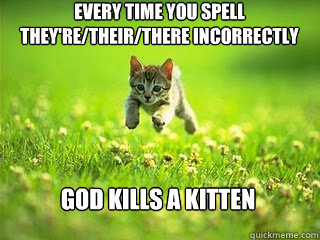
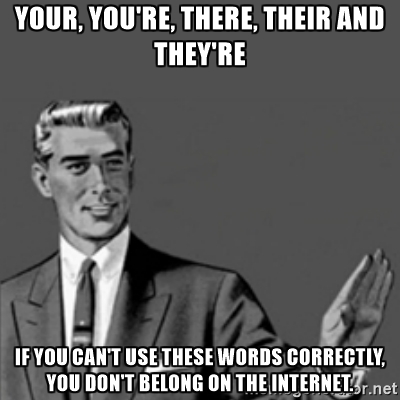
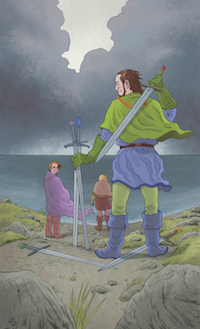


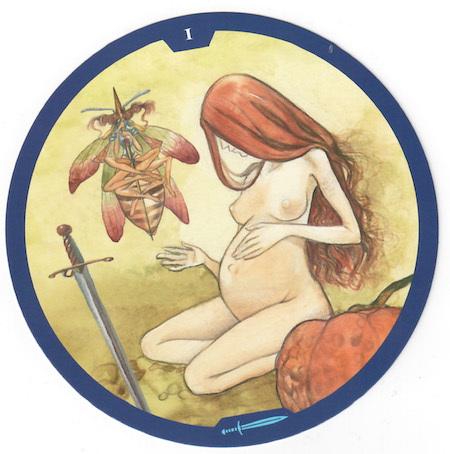
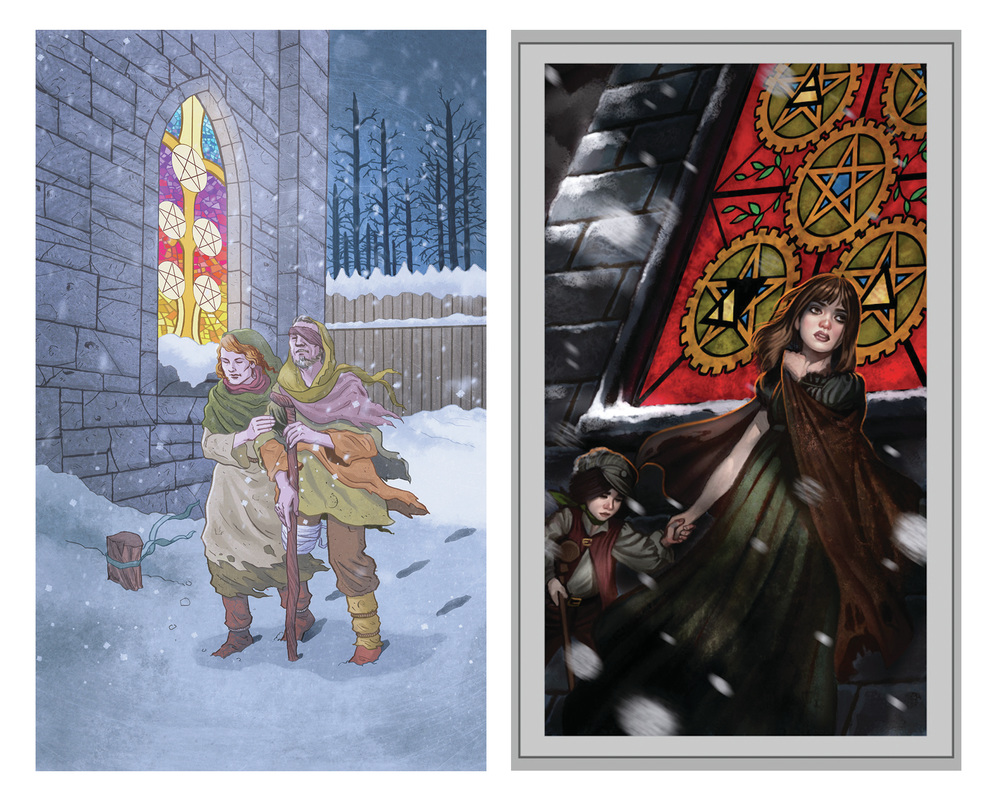
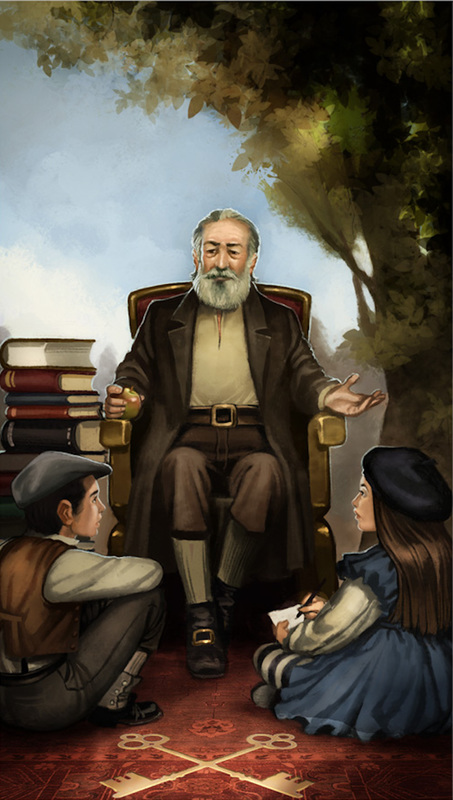

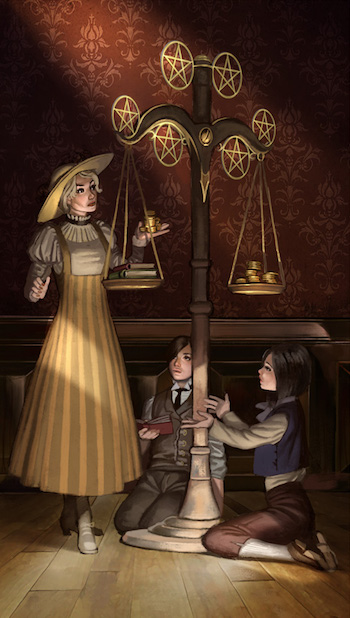

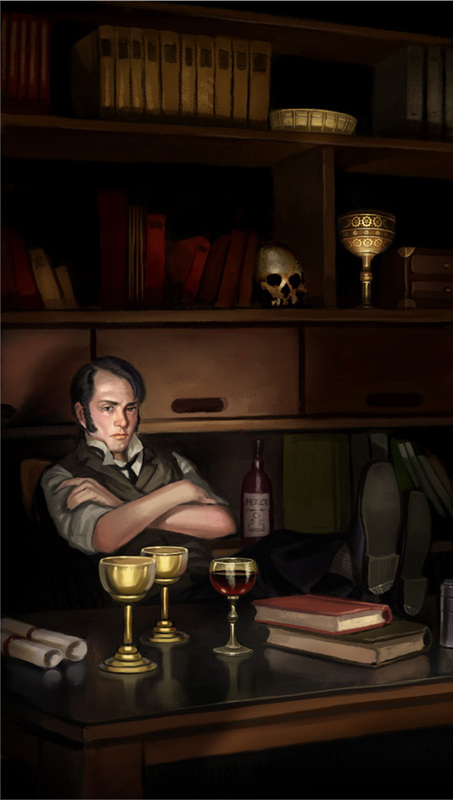
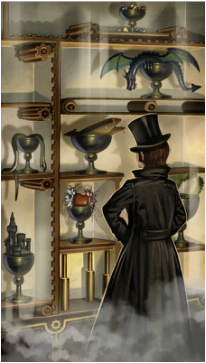
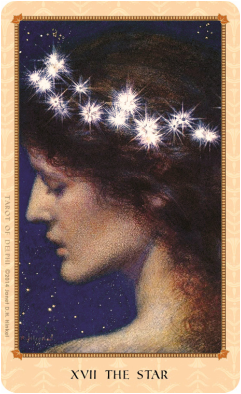
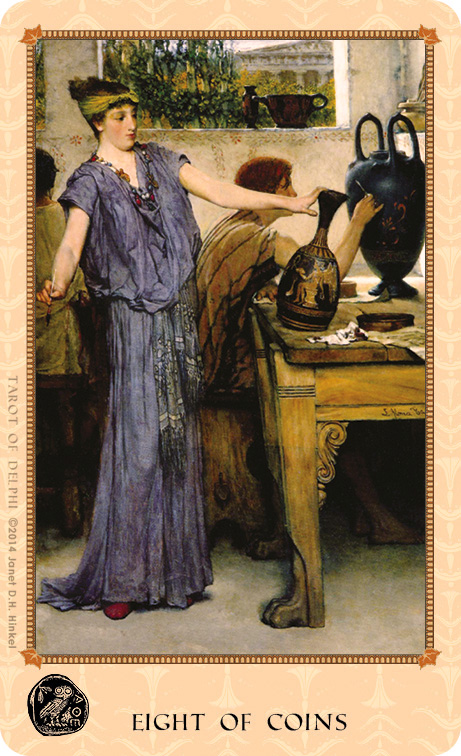
 RSS Feed
RSS Feed